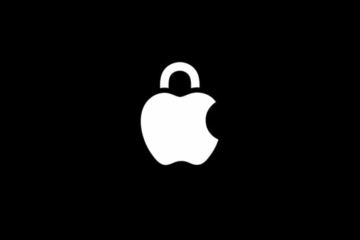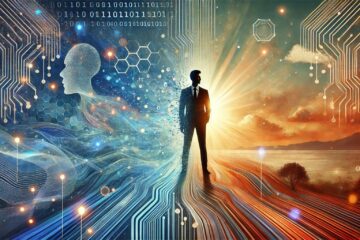Tech Leaders’ AI Vision 2025: Industry Giants Map the Future
As artificial intelligence continues its meteoric rise, 2025 stands poised to be a watershed year for the technology industry. From Silicon Valley to Seattle, tech’s most influential leaders are laying out their visions for AI’s next chapter, each bringing their unique perspective to what many consider a pivotal moment in computing history. Let’s dive deep into how these industry titans plan to navigate the challenges and opportunities that lie ahead.(Source: Investopedia)
Sundar Pichai: Google’s Race to Reclaim AI Leadership
Google CEO Sundar Pichai isn’t mincing words about 2025’s significance. In a candid internal meeting that revealed both urgency and determination, Pichai acknowledged that Google’s size had become a double-edged sword in the AI race. “The urgency of this moment cannot be understated,” he emphasized, painting a picture of a tech giant ready to shed its bureaucratic weight and sprint toward innovation.
At the heart of Google’s strategy lies Gemini, their flagship AI model that’s rapidly approaching the half-billion user milestone. However, Pichai’s vision extends beyond mere user numbers. He’s crafting a narrative of quality over speed, drawing on historical precedents where second movers ultimately dominated markets through superior execution. “Being first isn’t everything,” Pichai noted, “it’s about delivering the best product to solve real user problems.”
Sam Altman: OpenAI’s Bold March Toward AGI
While some industry leaders speak of AI hitting natural plateaus, OpenAI’s Sam Altman sees 2025 as a launching pad toward even greater achievements. His recent conversation with Y Combinator’s Garry Tan revealed an executive who’s both excited about and pragmatic regarding artificial general intelligence (AGI).
Altman’s vision for AGI is notably nuanced. “AGI will arrive sooner than most expect, but its initial impact might be subtler than the hype suggests,” he explained to The New York Times. This measured optimism comes with interesting context: a reported agreement with Microsoft defines AGI achievement through a concrete metric – the ability to generate $100 billion in profits.
Satya Nadella: Microsoft’s Agent-Centric Revolution
Microsoft CEO Satya Nadella is painting a picture of 2025 that could fundamentally reshape how we think about business software. His bold prediction about AI agents potentially causing traditional business applications to “collapse” signals a dramatic shift in enterprise technology.
Despite Microsoft’s strong partnership with OpenAI, Nadella envisions a competitive landscape where multiple players can thrive. His strategy leverages Microsoft’s apparent underdog position in certain markets as an opportunity for aggressive innovation, particularly with CoPilot and Edge.
Mark Zuckerberg: Meta’s Multi-Platform AI Dominance
Meta’s approach to AI in 2025 is characteristically ambitious. With Llama 4 training on what Zuckerberg describes as an unprecedented scale of GPU clusters, Meta is positioning itself for a major push in both consumer and enterprise AI applications.
The numbers are already impressive: Meta AI boasts nearly 600 million monthly active users, leveraging the company’s massive social media ecosystem. Zuckerberg’s vision extends beyond social applications, with significant investments in AI-driven advertising technology and ambitious projects like the Orion headset.
Tim Cook: Apple’s Privacy-First AI Evolution
Apple’s Tim Cook is charting a distinctly different course for 2025, emphasizing a marriage between AI innovation and privacy. His recent statements debunk speculation about paid AI services, instead positioning AI as a fundamental technology layer, similar to how multitouch transformed mobile computing.
Cook’s vision for 2025 includes a fascinating focus on AI-powered medical technology, particularly through Apple Watch and AirPods. “We’re investing in technologies that are years in the making,” he revealed, hinting at ambitious plans to leverage AI for real-time biometric analysis.
Dario Amodei: Anthropic’s Measured Approach to AI Agents
Anthropic’s CEO Dario Amodei brings a uniquely cautious perspective to the 2025 AI landscape. While acknowledging the potential of AI agents, particularly in coding automation, Amodei advocates for a measured approach to deployment.
His vision for 2025 focuses on two key areas: understanding the inner workings of large language models and applying AI to complex biological problems. This intersection of AI and biology represents a particularly exciting frontier, with Anthropic already collaborating with pharmaceutical companies and biotech startups.
Looking Ahead: The Convergence of Visions
As we analyze these leaders’ visions for 2025, several common threads emerge:
- A shared belief in AI’s transformative potential, particularly in enterprise and healthcare applications
- Varying approaches to AGI development and deployment
- An increasing focus on practical applications over theoretical capabilities
- Recognition of the need to balance innovation with responsibility
Frequently Asked Questions About Tech Leaders’ AI Vision 2025
What are the key AI priorities for major tech companies in 2025?
Google is focusing on scaling its Gemini models and improving user adoption, Microsoft is emphasizing AI agents and business transformation, Apple is prioritizing privacy-focused AI integration in health technology, and Meta is expanding its Llama 4 model while growing its AI assistant user base across social platforms.
How do tech leaders differ in their approaches to AGI (Artificial General Intelligence)?
Sam Altman from OpenAI believes AGI will arrive sooner than expected but with gradual impact, while Tim Cook focuses on practical AI applications rather than AGI. Sundar Pichai emphasizes solving immediate user problems, and Satya Nadella concentrates on business transformation through AI agents.
What is Satya Nadella’s prediction about business applications in the AI era?
Nadella predicts that traditional business applications could “collapse” in the agentic AI era, suggesting a fundamental shift where AI agents might replace conventional software-as-a-service (SaaS) solutions. This vision indicates a major transformation in how businesses will operate with technology.
How are different companies approaching AI privacy and security?
Apple, under Tim Cook, emphasizes “personal and private” AI innovation, refusing to compromise privacy for intelligence. Other leaders like Pichai and Zuckerberg focus on scale and adoption while maintaining security standards, and Anthropic’s Amodei advocates for careful, measured deployment of AI capabilities.
What are the major AI products expected from these companies in 2025?
Key products include:
- Google’s expanded Gemini models
- Meta’s Llama 4 and enhanced Meta AI assistant
- OpenAI’s O3 and O3 mini models
- Microsoft’s advanced Copilot and Edge integrations
- Apple’s AI-enhanced health technology features
- Anthropic’s improved coding automation tools
How do tech leaders view AI competition in 2025?
While competition is expected to be intense, leaders like Nadella believe it won’t be a “winner-takes-all” scenario. Pichai emphasizes execution over being first, and Zuckerberg focuses on leveraging Meta’s massive user base for AI adoption. Each company is carving out its unique position in the AI landscape.
What role will AI play in healthcare according to tech leaders?
Tim Cook specifically highlights Apple’s focus on AI-powered medical technology through devices like Apple Watch and AirPods. Anthropic’s Amodei mentions collaboration with pharmaceutical companies and biotech startups, indicating a growing intersection between AI and healthcare innovation.
How are companies addressing AI reliability and trust?
Anthropic’s Amodei cautions against over-relying on AI agents for critical tasks, while other leaders emphasize gradual implementation and testing. Microsoft and Google are focusing on practical problem-solving applications, and Apple prioritizes privacy in its AI development approach.
What is the expected impact of AI on business operations in 2025?
According to Nadella, AI agents could fundamentally change how businesses operate, potentially disrupting traditional software applications. Zuckerberg sees AI enhancing core business functions, particularly in advertising, while Pichai emphasizes solving real user problems through AI integration.
How are tech companies preparing for AI integration in consumer products?
Companies are taking different approaches:
- Apple is integrating AI into existing hardware while maintaining privacy
- Meta is embedding AI across its social media platforms
- Google is focusing on making Gemini accessible to more users
- Microsoft is enhancing consumer-facing products with AI capabilities




